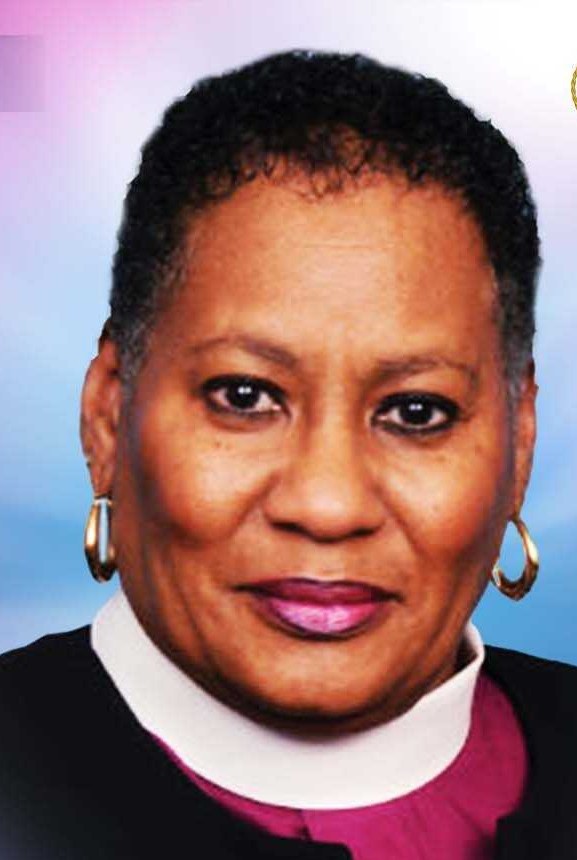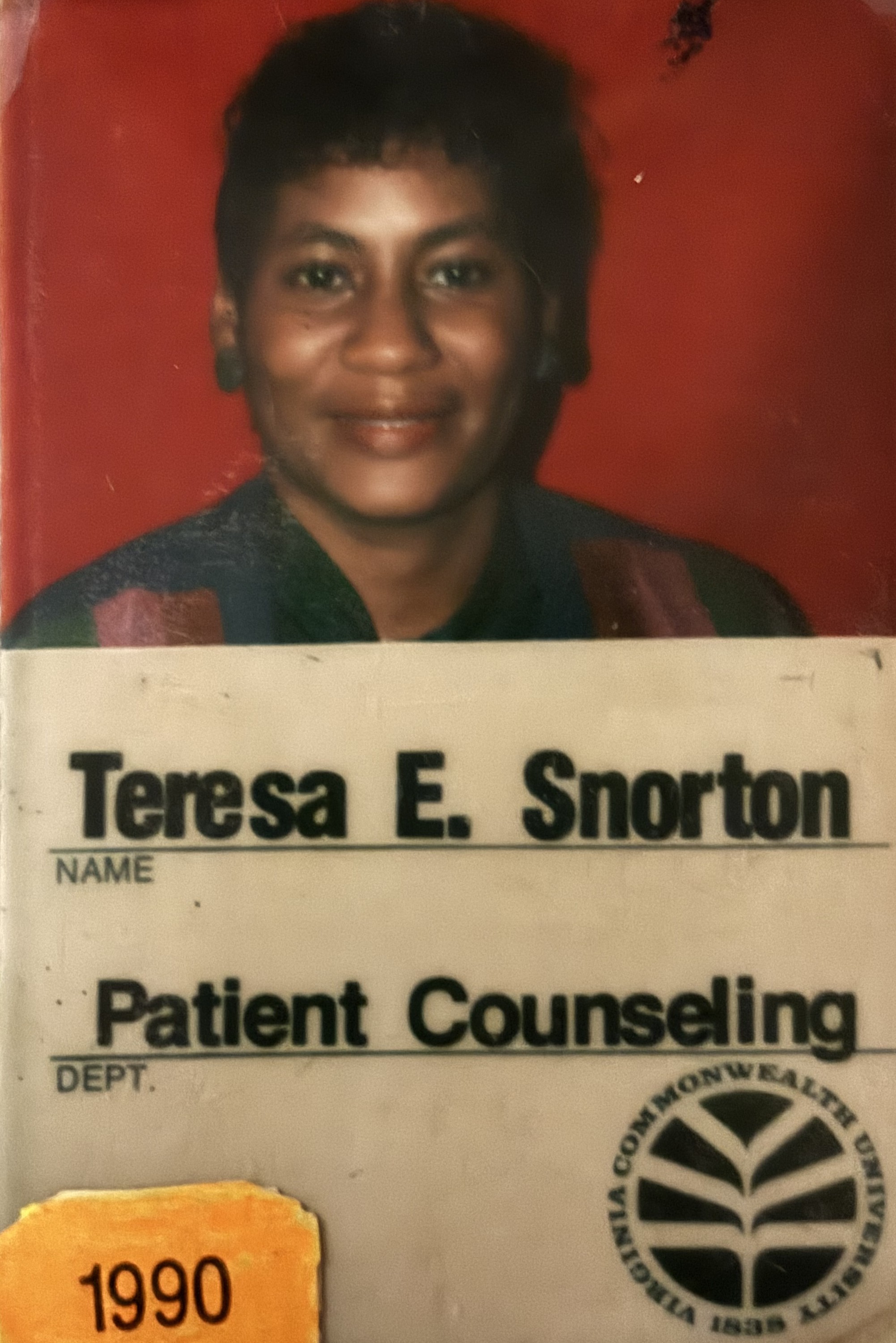How VCU helped shape Bishop Teresa Snorton’s path of ministry and healing
 Bishop Teresa E. Snorton has carried her experience at VCU with her across decades, pulpits and continents. Long after she finished her postgraduate certificate in Patient Counseling – now part of the College of Health Professions – she still finds herself looking back to her time in Richmond and VCU.
Bishop Teresa E. Snorton has carried her experience at VCU with her across decades, pulpits and continents. Long after she finished her postgraduate certificate in Patient Counseling – now part of the College of Health Professions – she still finds herself looking back to her time in Richmond and VCU.
“Those were very powerful, very impactful years in my life – both personally and professionally,” Snorton said. “VCU is, was and continues to be one of the stellar programs. I’ve referred a number of students there.”
Snorton, now the 59th bishop and first woman bishop in the Christian Methodist Episcopal Church, never set out to carve history. She began as a chaplain, a young minister trying to keep two small children fed while her life was reshaping as a result of divorce. In 1987, her mother urged her to move home to Richmond. Snorton initially hesitated: She had a job in Kentucky, and no position waiting in Virginia. During a visit to Virginia, the unexpected happened.
“Kind of on a lark, I started calling and inquiring about chaplain positions,” she said. “Everybody was like, well, it’s September. We’ve already started our year. Our program is full.”
She thought that was the end of it.
Days later, the phone rang. A slot had opened in what was then known as VCU’s Clinical Pastoral Education residency, which would coincide with enrolling as a student. Someone withdrew suddenly. Could she interview? She did, with her infant and toddler waiting in the car with her mother. “And that’s how I ended up at VCU.”
Finding a new kind of footing
What she found was not only a rigorous academic path but a community willing to carry her through upheaval. “In December, when I finally found an apartment, the Patient Counseling staff helped me move,” she said. “It was a very supportive environment, very encouraging.”
Those first months were raw. She was breastfeeding her infant while assigned to the hospital’s special care nursery. “Every time those babies cried, my body thought it was my baby,” she said with a laugh. But the program’s faculty gave her space to steady herself. Snorton would go on to join the faculty herself for a year before leaving for a position at Emory University.
Snorton’s time at VCU was foundational. She credits an interdisciplinary task force on multicultural issues for sparking the research that later shaped her doctoral dissertation. “That engagement actually became my focus when I did my Doctor of Ministry program: to develop a curriculum for teaching students how to utilize the various aspects of culture in crafting an appropriate response to the patient’s need,” she said.
The VCU-learned lesson she’ll never stop teaching
In nearly every class she teaches today, Snorton shares a story from her nights on call at VCU. It was the Wednesday before Thanksgiving. She was tired, wishing to be home helping her mother in the kitchen, when a nurse paged her to sit with a patient who couldn’t sleep.
“It was an elderly, very frail, African American woman in her 90s,” Snorton said. “She asked me to comb her hair. And as I was brushing her hair, she started humming ‘Amazing Grace.’ I am not a singer, but I tried to sing along with her.” When she finished, the patient looked at her and said, “I was praying for God to send me an angel, and here you are.”
Snorton’s voice still catches telling it. The woman died on Thanksgiving Day. “I share that story often,” she said. “As a way of helping pastoral individuals understand not to underestimate the power of just being there for somebody.”
A bishop with roots in Richmond
 Snorton has gone on to break barriers and build institutions: as the first woman bishop of her denomination, as past chair of the National Council of Churches, as founder of conferences and academies that lift women and pastors into new leadership. She has served in East Africa, Alabama and Florida, not to mention across the ecumenical landscape. She even has a Wikipedia page that charts it all. But she still circles back to Richmond.
Snorton has gone on to break barriers and build institutions: as the first woman bishop of her denomination, as past chair of the National Council of Churches, as founder of conferences and academies that lift women and pastors into new leadership. She has served in East Africa, Alabama and Florida, not to mention across the ecumenical landscape. She even has a Wikipedia page that charts it all. But she still circles back to Richmond.
“Some were very pleasant memories,” she said.
She recalls the old North Hospital, Newton House, faculty still in touch today. She recalls, too, what it meant to work with students from Virginia Union University, the first time she trained Black students in pastoral education. “It was invaluable to me,” she said, “because I got the opportunity to not just glean resources from the academy, but also glean resources and experience with the culture that I’m a part of.”
Why patient counseling matters
Over the years, Snorton has come to realize that the human condition hasn’t changed, making her calling and profession all the more relevant. “People are still getting sick. They’re still having physical, mental, emotional, relational challenges and they’re searching for meaning in the midst of those challenges,” she said. “Having individuals who are trained, educated and prepared to respond to those kinds of questions – that is absolutely essential.”
Snorton is quick to downplay her trailblazing titles, yet her excitement comes through when she speaks about chaplains who sit with hospital patients at 3 a.m., students who find courage in their first patient encounter and mothers who remind their daughters to take risks for the sake of calling.
After all, it was her own mother’s insistence that brought her to VCU.
“It was not something I planned, but something that just kind of opened up and came my way,” she said. “If you believe in the providence of God, God will lead you to the place you need to be. It was the place I needed to be.”
-by Dan Carrigan